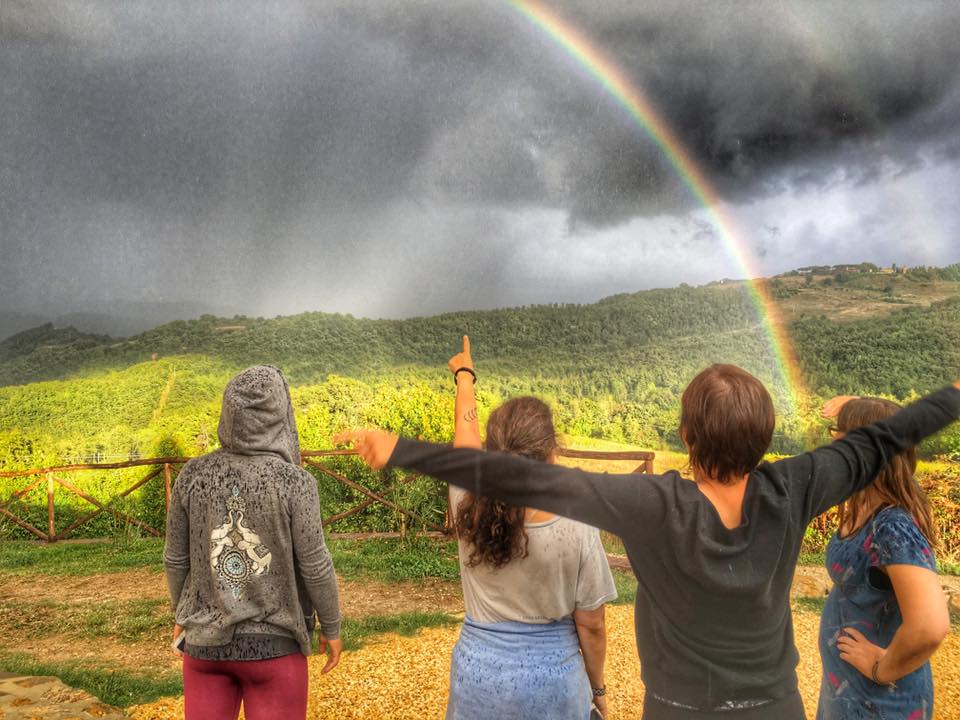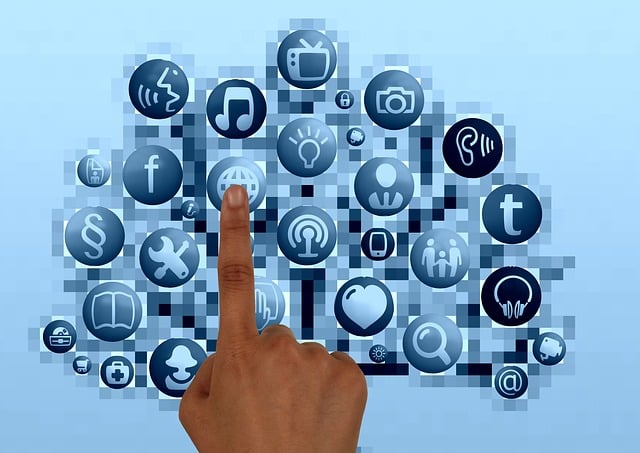By Christie Tate
“You can just unfriend him. At least hide his profile.”
This is good advice, advice I’d be well served to take. I’ve just told my best friend about the latest offense my Tea Party pro-Trump second-cousin has committed on social media. This cousin triggers me to the moon with his red state propaganda. I haven’t laid eyes on him since my grandfather’s funeral in 1981. I was in third grade. I remember only that his face was wide and flat like the surface of the moon. We share the same last name and a handful of relatives that I’m not close to. We were “reunited” on Facebook a few months ago when my first cousin put me in touch with his daughter.
I didn’t know he was a pro-Trump guy at first. The posts were all about his grandbaby and his beloved Texas Aggies. Babies I can get behind 100% of the time; the Aggies I could take or leave.
Then, over the summer the Black Lives Matter protest in Dallas erupted in gun violence and police officers were killed in the line of duty. I posted something that was pro Black Lives Matter, and his response was racist, offensive, anti-Constitutional, and impossible to ignore. I held my phone and in that tiny square for REPLY I told him why Black Lives Matter was important and that he was wrong about who was to blame for the violence. I cited numerous incidents were young black men were killed at the hands of trigger-happy, racist police officers. After I published my remark, I shook like someone soaking wet in a snow storm. Had I just taken this man with my father’s smile to task? Was I now in trouble? I was 43 years old, sitting in the office where I work as a lawyer, shaking like I’d just thrown a Molotov cocktail through an elderly person’s window.
Shame. I only get the shakes like that, when the shame coursing through my body is too much to bear.
But why I am ashamed? I’m not the one who thinks that murdering black people on routine traffic stops is okay. I’m not the one who thinks that Constitutional protections belong only to white people (men). That’s on him.
But I’m the one shaking.
This isn’t the first time that a friend has suggested that I hid his feed or dump him. He’s no friend of mine. But I don’t consider it. And not because he’s family. My parents think he’s a nutcase and siblings have kept their distance. So why would I, a mostly rational woman, keep this man around, risking that I’d stumble upon an upsetting status or see his vitriol under a picture I’d posted of the Obama family?
It’s taken months to formulate anything close to an answer.
You can imagine how the tension flared between us as fall 2016 went on. I was gratified one morning to see that his wife had called him out for his caustic rant against Hillary Clinton. “Our children are watching! Why do you do this?” I shook my fist at her, glad she was publicly calling him out, while simultaneously wondering why she married someone so hateful.
The night of Obama’s farewell speech, I reposted every pro-Obama meme I could get my hands on. Like-minded friends were mourning alongside me.
The next morning Cousin Tea Party made a derogatory comment about Michelle Obama, the main gist of which was that he couldn’t wait to see class return to the White House after eight years. Again, I found myself in the small square REPLY box. I told him that I wished Melania the best – going high because Michelle Obama told us too—but with all due respect, she would never be Michelle Obama, whose class, soul, and intelligence will never be matched by anyone who possesses the title of First Lady. My friend Michael swooped in and called him a racist for speaking ill of Michelle Obama and the two of them went back and forth.
We went at it again over Betty DeVos. Then Michael Flynn. No doubt next week we will clash over something else.
I’ve never shared a single one of this cousin’s opinions. If our values were a Venn diagram, the two circles would be a foot apart. Why do I need this?
The answer is trauma.
Early childhood trauma—family addiction and alcoholism—marked me early and marked me deep. My reaction to insane situations is not the same as someone who was not marked by trauma. A sane, nontraumatized person would calmly unfriend an offensive Tea Party cousin. They would feel the pain of the interaction, the futility of engagement, and say, “this hurts. I’m letting go.”
Not me. My reaction to toxic figures like my cousin, and the President he admires and supports, is to go very still. Still so maybe he won’t see me, so maybe I can get out of this alive. Still like prey. Still like someone being hunted.
My second reaction is vigilance. Vigilance means never letting scary people out of my sight. If I do, then they can sneak up on me. They can tear the covers off the bed after I’ve finally succumbed to sleep. They can sink the knife deep into me. I should delete him and the other people in my life who trigger me with their racism, misogyny, homophobia, and ableist bullshit. Of course I should. It would be so simple to click, click, click and get them out of my feed, my head, my line of vision.
But taking my eyes off them, even for one second, means courting the anxiety that they could be waiting around the next dark corner. It violates the number one rule: never, ever let them sneak up on you.
That’s why I don’t unfriend him. I have to keep him close, even though his comments bring me physical pain. His memes sock me in the solar plexus. His rhetorical questions and sneering put-downs of the values that I plan to fight as hard as I can for fill me with rage and grief. I broke a phone case after reading a pro-Trump rant during the immigration ban. I had a panic attack after our Black Lives Matter fight.
But it’s still better to keep him where I can see him. It’s the safest option.
This is the legacy of trauma. This is the legacy of a central nervous system shot to hell before I could read, before I could imagine asking for help or speaking up about what was going on around me. This is metabolized trauma. My safety depends, not on erasing offenders or running to higher ground, but on keeping them visible, in my sight line, always in front of me so I can protect my vital organs.
That’s why my feed has Tea Party candidates and gun toters and immigrant-haters who are blatantly racist and hate women. There seems to be no bottom to their hatred and drive to subjugate. Those are not my values—they are the stuff of my worst nightmares. They are the present-day embodiments of long ago terror. And I will never turn my back on them because I don’t want their claws sinking into me when I’m not looking. If I’m going to go down, I will go down looking straight into their cold, unfeeling eyes.
Christie Tate is a writer and lawyer in Chicago. Her essays have appeared in The Washington Post, The Chicago Tribune, and McSweeney’s, and she’s working on a memoir about her first 800 group therapy sessions.




I’ve had the same reaction to various “friends.” My reaction was not to unfriend them but to unfriend Facebook for while. I shut down my account. t was very hard and tempting at first but as the weeks went on, I felt like I had been paroled. My entire brain felt better. As I eventually snuck back on, I was again pulled into the nastiness so I said to myself, “I am here for fun only. This is not fun.” And I unfriended left and right. I haven’t heard boo from any of them, they probably don’t even notice.
So well written and your reactions are so well explained. Those without forms of PTSD simply can’t understand. Mine comes from a different cause, but I completely understand. Thanks.